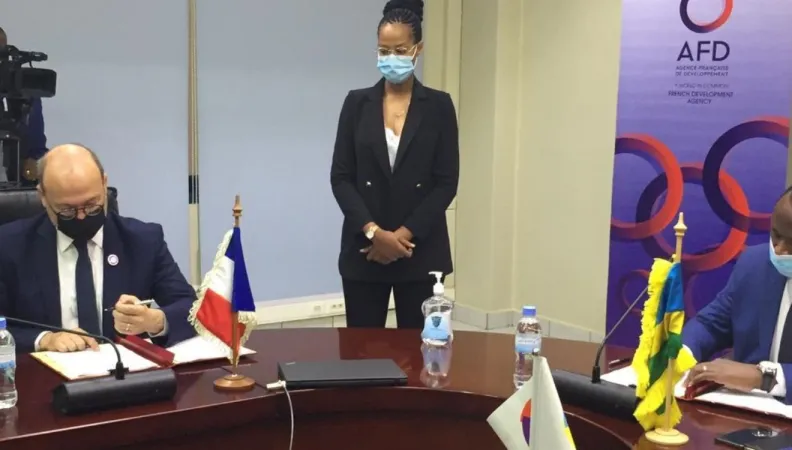Share the page

On May 27, on the sidelines of the visit of the President of the French Republic to Rwanda, Dr. Uzziel Ndagijimana, Minister of Economy and Economic Planning of Rwanda, and Mr. Rémy Rioux, Director General of Agence Française de Développement (AFD) signed an agreement for the financing of the national plan of health and social response to the crisis Covid-19.
This 60 million euro budget loan from AFD (approx. 72 bn Rwf) is a continuation of the "Health in Common" financing granted in June 2020 which aimed to support the Rwandan authorities' health and social response plan through a 40 million euro budget support.
The purpose of this budgetary support is firstly to contribute 40 million euros to the implementation of the overall health response plan (detection and management of Covid-19 cases, logistical and human resources support for the national vaccination campaign, information and awareness-raising for the general public, continuity of care for the entire population). Secondly, the 20 million in additional support is intended for social protection measures to limit the effects of the crisis on the most vulnerable populations.
Already affected by the 1st wave of the pandemic in the spring of 2020, Rwanda had adopted a national health and social response plan. The country faced a second wave in the winter of 2020. In response, the Rwandan authorities - through the Ministry of Health and the Rwanda Biomedical Center (RBC) within it, put in place in March 2021, in coordination with the World Health Organization (WHO) and international partners, a new health plan for the year 2021, which includes the national vaccination plan. The authorities have set themselves the goal of reaching 60% of their population vaccinated by the end of 2022.
Although Covid-19-related mortality was brought under control by rapid and effective containment measures, the social and economic consequences, particularly for precarious workers in the informal sector, are not well known. However, a number of indicators, in particular the inability of part of the population to renew their membership in mutual health insurance schemes, give rise to fears of widespread impoverishment of certain categories, with social protection measures taking on their full meaning.
